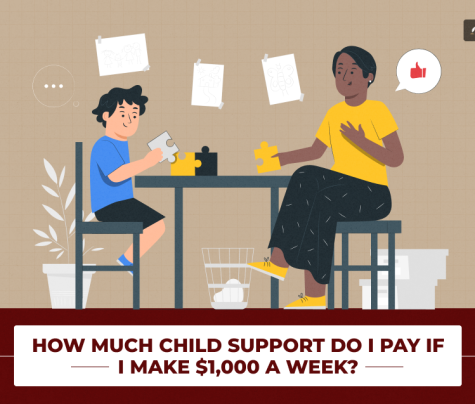
It is 2025 and we are dealing with the different types of divorces. And that is exactly what today’s topic is going to be about: Contested vs Uncontested Divorce!
I don’t know if you have heard this or not, but in almost all cases, couples must choose and decide which form of divorce they want to go ahead with between a contested and an uncontested divorce.
There can be several reasons why one might have to make up their minds and decide. And irrespective of which one they choose, there are generally financial, emotional, and legal implications that are associated with each choice.
You can make an informed choice that fits your situation by being aware of the differences between a contested and uncontested divorce. Additionally, seeking advice from a skilled divorce lawyer can offer direction and clarity all along the way.
But, coming back to the point, which divorce is better for you, and how to decide which one to choose?
Hi. In today’s blog, these are some of the things that I will be talking about, Som if you want to know more about these two types of divorces, please keep reading till the end!
Contested vs Uncontested Divorce: Understanding These Two Divorce Types

Before explaining the differences between these two forms of divorce, let me first explain what a contested and uncontested divorce is.
Do you see the kinds of divorce cases that are generally taken to court because one party wants the separation and the other party does not? These are contested divorces. It occurs when spouses do not agree on one or more issues related to the divorce.
Most of the time, these disputes involve problems related to property division, child custody, alimony, or other critical matters.
As a result of the disagreements between the two parties, there is a need for legal intervention. It helps to resolve the problem and come to a middle ground. And because of this, a contested divorce is generally more costly and time-consuming.
On the other hand, there are uncontested divorces and it is exactly the opposite of the contested one. It happens when both spouses reach a middle ground and do not need any form of legal intervention or resolve disputes.
Since there are no disputes requiring court intervention, the process is typically faster, less expensive, and less stressful than a contested divorce.
When Is a Contested Divorce Necessary?
In some situations, a contested divorce is unavoidable. This may be the case if:
- There are disputes over asset division or spousal support.
- Child custody arrangements cannot be agreed upon.
- One spouse is unwilling to negotiate in good faith.
- Domestic abuse, financial dishonesty, or other serious issues are involved.
In such cases, a divorce lawyer can provide legal representation and work toward a fair resolution in court.
When Is an Uncontested Divorce the Better Option?
An uncontested divorce is ideal when both spouses can communicate effectively and are willing to compromise. It works well when:
- Both parties agree on asset division, child custody, and financial support.
- There is mutual respect and a desire to avoid prolonged legal battles.
- The couple wishes to finalize the divorce quickly and cost-effectively.
Contested vs Uncontested Divorce: Key Differences You Should Know!

Now that you are aware of what these two types of divorces are, let me explain what are the major differences between Contested vs Uncontested Divorce:
| Parameter | Contested Divorce | Uncontested Divorce |
|---|---|---|
| Agreement | Spouses cannot reach an agreement on divorce issues. | Spouses have agreed on all aspects of the separation. |
| Court Involvement | Extensive court hearings and legal proceedings to resolve disagreements. | Only needs a brief court appearance to finalize the agreed-upon terms. |
| Cost | More expensive. | Less expensive. |
| Timeline | Takes more time. | Comparatively faster. |
Contested vs Uncontested Divorce: Factors to Consider When Choosing Between the Type of Divorce
Determining whether a contested or uncontested divorce is best depends on the unique circumstances of your situation. Factors to consider include:
Cost:
A contested divorce is significantly more expensive than an uncontested one. Since contested divorces involve court hearings, legal motions, and possibly even a trial, the associated attorney fees and court costs can add up quickly.
In contrast, an uncontested divorce usually requires fewer legal resources. This makes it a far more affordable option for most people.
Time:
Contested divorces frequently take months or even years to settle since they involve discussions, court hearings, and potential litigation.
However, depending on the jurisdiction and backlog of cases, the court can complete uncontested divorces in a few weeks or months.
Impact on Emotions:
Additional stress and emotional strain may result from a contentious divorce’s confrontational tone.
This is particularly true when it comes to instances involving the custody of children. The procedure may be controversial, resulting in drawn-out arguments and increased hostility.
In contrast, an uncontested divorce promotes a more harmonious outcome and permits both parties to proceed with little strife.
Legal Complexity:
A contested divorce often involves complex legal proceedings, requiring the assistance of a skilled divorce lawyer to navigate the case effectively.
This is especially true in high-asset divorces, custody battles, or when one spouse is uncooperative. In contrast, an uncontested divorce is generally straightforward, involving minimal legal intervention.
Privacy:
Contested divorces often become a matter of public record due to court proceedings and legal filings.
This can expose personal and financial details to public scrutiny. An uncontested divorce, being mostly resolved outside of court, allows for a higher level of privacy.
Mediation as an Alternative to Litigation
In case you did not know, mediation may be a good option for couples who are having trouble agreeing but wish to avoid a contested divorce.
With the help of mediation and the involvement of a third party who is impartial towards both of them, spouses can resolve their conflicts outside of court.
While this is not an uncontested divorce from the very beginning, it tends to be more amiable when you compare it with the contested one.
With the help of the mediator, the husband and wife (or the two partners) can resolve their dispute and negotiate before turning things bitter. There are times when with the help of a mediator, couples have decided to choose separation instead of a divorce.
Both parties can maintain control over the contents of their divorce agreement. Additionally, this process frequently lowers legal expenses and conflicts.
The Impact of Divorce on Children
Now, coming to one of the most obvious things that is related to a divorce is the impact of a divorce on the children.
The impact of a divorce on children is among the most important factors to take into account. Children may find contested divorces especially difficult since they are exposed to parental conflict and uncertainty.
Children can live in a more stable and less upsetting environment after an uncontested divorce, particularly if the parents work together to establish co-parenting agreements.
Whatever the nature of the divorce, it is essential to put the welfare of the children first through open communication and well-considered custody agreements.
The Role of a Divorce Lawyer
In conclusion, irrespective of whether a divorce is contested or uncontested, it is best that you hire a divorce lawyer. This helps to ensure that you can protect your legal rights.
For instance, the lawyer can help you by drafting the paperwork that is necessary in the case of an uncontested divorce. Thereby, they will be able to ensure that the agreement is legally binding.
On the other hand, in the case of a contested divorce, the divorce lawyer will play a very crucial role in negotiating settlements and representing clients in court. Additionally, they will advocate for the best interests of their clients.
An uncontested divorce offers a quicker, more cost-effective, and less stressful path to dissolution. However, when disputes arise, a contested divorce may be necessary to ensure fairness and legal protection.
Ultimately, consulting a knowledgeable divorce lawyer can help you navigate the process and achieve the best possible outcome for your situation.
Read Also:
- The Cheapest Way to Get a Divorce With a Child
- Divorce Property Division In Australia: 5 Essential Tips
- What is a High Net Worth Divorce? Everything You Must Know











0 Reply
No comments yet.